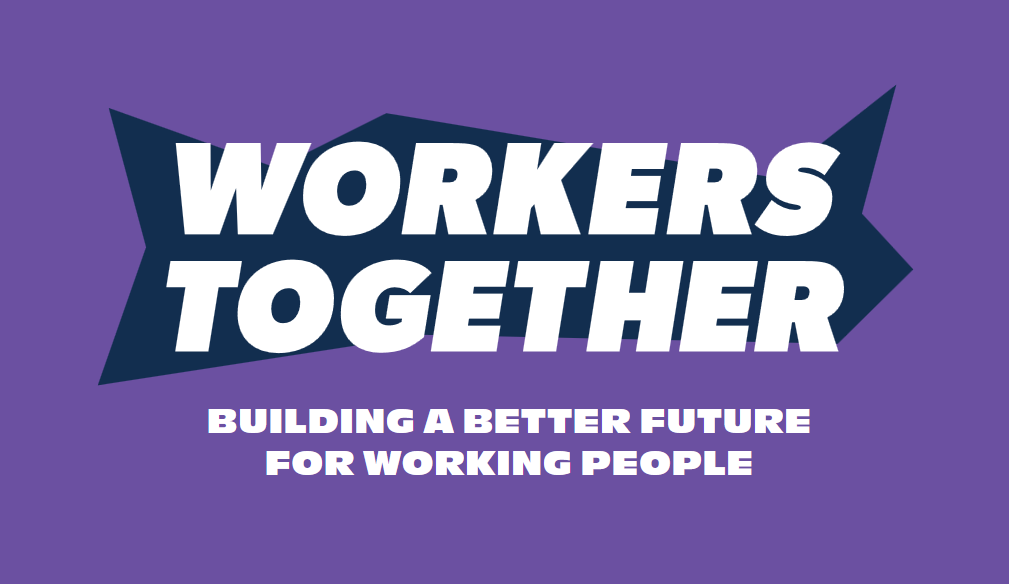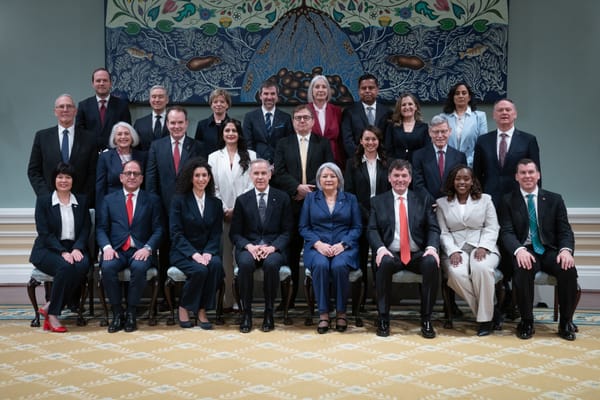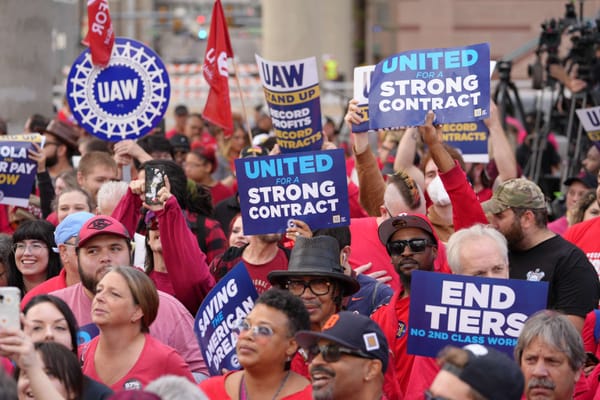
Last week, Teamsters Canada went public with their campaign to organize retail and call centre workers at Freedom Mobile, the wireless telecommunications provider acquired by Quebecor last year. According to the Teamsters’ press release, “Freedom Mobile workers from across the country have reached out to the Teamsters in the wake of the company’s recent acquisition. Amidst the uncertainty, workers are looking to protect what they have and secure better working conditions.”
The union is encouraging Freedom Mobile workers to contact the Teamsters to secure rights to fair compensation, job security, safe workplaces and better scheduling, regardless of who owns the company now. Lay-offs and downsizing frequently follow acquisitions and consolidation. “With the recent acquisition, job security may feel like a luxury,” the union writes. “But it doesn’t have to be. Unions work tirelessly to protect your job from the whims of the bosses.”
The campaign is also focused on improving the pay of Freedom Mobile workers across jobs, and protecting workers from any negative actions flowing from the company’s sale. As the Teamsters put it, “Workers are concerned over what the new owners will do with pay, schedules, and overall working conditions.” A union contract would ensure that “wage rates and working conditions cannot be changed on a whim.”
This union drive comes on the heels of recent corporate acquisitions and consolidation in the media and telecommunications sector. Freedom Mobile, previously a division of Shaw Communications Inc., was sold to Videotron, a division of Quebecor Inc., as part of Rogers’ acquisition of Shaw. When Rogers’ initial attempt to buy Shaw was blocked by Canada’s antitrust agency, the two companies hatched a deal to sell-off the budget mobile carrier. The $2.85 billion sale to Quebecor was part of Rogers’ larger $26 billion proposal to ameliorate concerns about the lack of competition arising from its purchase of Shaw.
“Freedom Mobile’s recent acquisition set off a wave of panic and anxiety in the company. It’s also what set off the organizing campaign. Amidst the uncertainty, workers are looking to the Teamsters and collective bargaining to protect what they have and secure better working conditions,” Christopher Monette, director of public affairs at Teamster Canada told me.
Freedom Mobile was originally called Wind Mobile before it was purchased and expanded by Shaw. In 2009, the Canadian Radio-television and Telecommunications Commission (CRTC) argued that Wind didn’t have the right to launch Canada-wide wireless service because it was funded and controlled by foreign owners. At the time, Orascom, an Egyptian conglomerate, owned the majority stake in Wind and had provided its primary start-up funding. Luckily for the company, the Stephen Harper government overruled the CRTC and encouraged Wind’s national rollout of services. In response, a federal court struck down the government’s decision to override the CRTC after competitors Public Mobile and Telus sued. The latter two companies, acting more out of their own self-interest than out of concern for Canadian customers, were trying to block Wind from introducing a national network. Ultimately, the government got its way by relaxing foreign ownership rules: the Supreme Court of Canada declined to hear a case against Wind, and the latter company became a national telecom carrier.
Yet, whether it’s foreign or domestic capital behind the telecoms, the treatment of labour remains markedly similar. This is an industry with a poor track record when it comes to respecting workers’ rights. In January 2018, Freedom and Shaw closed a Freedom Mobile call centre in Windsor, Ont., in retaliation against workers who had organized with the United Steelworkers (USW). Workers at the call centre joined the USW’s national Local 1944, which represents telecom workers at Telus, Shaw and other companies, one year earlier. According to USW, “Freedom and Shaw took an antagonistic stance against the organizing efforts of employees to join the union” and “continued that aggressive stance during bargaining, threatening to lock out all bargaining unit members in September 2017” after union members voted down what they felt was a “substandard contract offer from the company.”
Workers eventually ratified a first collective agreement. But not long after, the company announced it would close the centre and move its operations to Victoria, B.C., terminating 130 workers in three waves of lay-offs. As Ken Neumann, then USW national director for Canada, put it, “With over 1.18 million subscribers as of January 2018, Freedom Mobile contributes greatly to Shaw's profits. Shaw generously rewards its shareholders and executives. To take this action now against employees in Windsor is outrageous.” At the time, Shaw’s top five executives were taking home nearly $37 million combined.
More recently, telecom giant Bell has been in the spotlight because of a particularly contentious round of contract negotiations with Unifor last year. With a potential strike looming, Unifor filed an unfair labour practices complaint against Bell after the company tried to pressure workers to cross the future picket line. A senior vice-president at Bell sent emails to unionized staff, asking them to “declare their intent to continue working during a potential strike or lockout.” The company further offered remote work as a way to digitally scab on coworkers, going so far as to claim workers would make more money by scabbing and not paying union dues. The union described Bell’s actions as “disgraceful” in an open letter to federal Minister of Labour Seamus O’Regan. Unifor closed its letter by reiterating the importance of federal anti-scab legislation to prevent or punish such employer behaviour. The Trudeau Liberals have promised to introduce a ban on scabs in the federal jurisdiction by the end of this year as part of their supply-and-confidence agreement with the New Democrat Party.
The recent sale of Freedom offers a potential opening for the Teamsters, as workers manage the ownership transition and seek the type of security that unionization could provide. At the same time, the politics of the telecom industry are also quite fraught, with many anti-monopoly proponents promoting greater competition and the growth of smaller firms as an antidote to corporate consolidation.
However, competition and the proliferation of small firms rarely bode well for workers or unions. On the one hand, as some unions with workers in the sector have argued, media concentration can lead to fewer employment opportunities as companies consolidate and shed jobs. On the other hand, increased competition can take place at the expense of workers. After all, smaller, upstart companies are often able to outcompete their large, established counterparts by undercutting them on labour costs. As such, many unions have not taken a strong position on the issue of corporate concentration and monopolistic power in media and communications. Perhaps smartly, unions, including the Teamsters, remain focused on protecting workers’ interests, no matter the ownership structure.
As Monette put it to me, “Telecom workers are the backbone of Canada’s connectivity. Their labour is critical in today’s digital world. And while the landscape of this industry may be changing, workers’ rights shouldn’t.”
According to Monette, teams of union organizers across Ontario, Alberta and British Columbia have had conversations with hundreds of workers and have begun signing union cards. If all goes well, Freedom Mobile workers could soon be union members.







